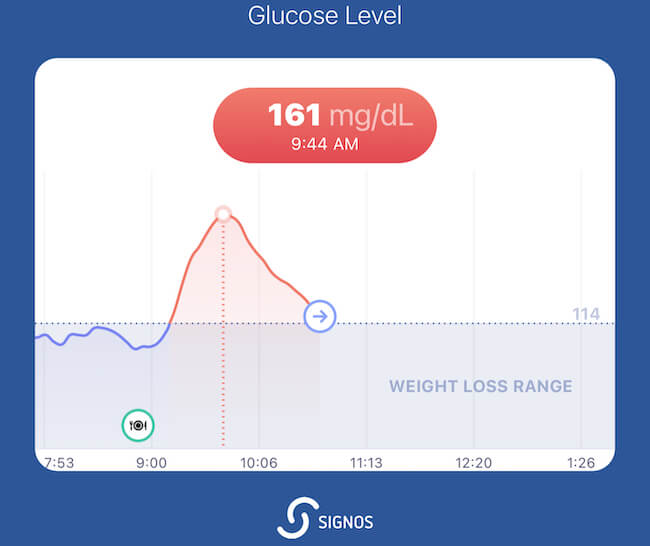What’s your blood Vitamin D level? If you don’t know, you should find out. Soon. You might be among the 41% of Americans with insufficient stores of this important nutrient. When the topic of health benefits of Vitamin D comes up, most of us think of bone health. More than two centuries ago, Dr. Thomas Percival discovered that a substance in cod-liver oil was effective at eliminating rickets. It was only in the 1920s that the compound was chemically identified and given its present name<sup>1</sup>.
But over the last twenty years, evidence has emerged linking low Vitamin D levels to diseases beyond the skeletal system. Among these are cancer, heart disease, autoimmune disease, and infectious diseases; including COVID-19.
Vitamin D Deficiency in the United States
It’s estimated that 1 billion people—or 13% of the world’s population—don’t get enough Vitamin D. In the United States, 41% of the population has Vitamin D deficiency (defined as a blood level of <20 nanogram/ml). The rate is much higher among minorities. Some 82% of African Americans and nearly 70% of Hispanics are affected.<sup>2</sup>
Addressing a Vitamin D deficiency can be a simple part of optimizing your overall health.
What Is Vitamin D?
Vitamin D is a vitamin, of course. Technically, a vitamin is a compound that must be included in our diet because our bodies can’t synthesize it. Our bodies, it turns out, can synthesize Vitamin D. But not all the time, and often not enough of it.
It is more accurate to call Vitamin D a prohormone: a precursor to a hormone. In truth, the term Vitamin D is used to refer to several related compounds<sup>3</sup>. The terminology can be a little confusing but don’t let that discourage you. There’s no need to get bogged down in the intricacies of biochemistry to understand how you can improve your Vitamin D status. The form of Vitamin D that is measured in blood tests is 25-hydroxyvitamin D. This form is the most reliable indicator of your Vitamin D health.
Sources of Vitamin D
There are four main sources of Vitamin D:
- Foods naturally rich in Vitamin D3. These are mostly limited to animal products such as, animal liver, egg yolks, fish oil, and fatty fish (such as salmon, cod, and halibut).
- Foods naturally rich in Vitamin D2. Mushrooms—including oyster, shiitake, morel, and chanterelle—are the only non-fortified, non-animal based food that offer significant amounts of Vitamin D.
- Vitamin D fortified foods. This is an important source of this nutrient for many Americans. These are milk (including soy, oat, and almond), some brands of orange juice, and most store-bought cereals. Please note that breast milk has very low levels of Vitamin D. As a result, in 2008, the American Academy of Pediatrics recommended supplementation for all exclusively breastfed infants.
- The sun. Your skin can synthesize the necessary precursor to vitamin D when exposed to sunlight. Melanin, the pigment that makes skin dark, interferes with the absorption of ultraviolet light used for vitamin D synthesis⁴. So dark skin, living in northern latitudes between October and April, and avoidance of sunlight are risk factors for vitamin D insufficiency.
Normal Vitamin D Levels
There is no consensus (and quite a bit of debate) over what should be considered optimal Vitamin D levels<sup>5</sup>.
- Vitamin D deficiency is defined as a blood level of 25-hydroxyvitamin D less than 20 nanograms/ml.
- Vitamin D insufficiency is a level below 30 nanograms/ml⁶.
But some health experts advocate for higher levels, others for lower ones. This can be understood in part based on the desired outcome. For bone health, levels above 12.5 nanograms/ml seem to be sufficient. But to prevent other illnesses, higher levels may be better<sup>7</sup>.
What Does Vitamin D Do?
Vitamin D is a hormone that exerts its effects throughout the body when it interacts with a receptor aptly termed the Vitamin D Receptor (VDR). VDR receptors have been identified in virtually every tissue in the human body including breast, colon, prostate, and immune cells<sup>8</sup>. And it directly or indirectly affects the expression of more than 2,000 genes<sup>9</sup>.
Promotes Bone Health
Vitamin D is central to bone health. It regulates the absorption of calcium and phosphate from the intestinal tract and stimulates the mineralization of bone. A lack of Vitamin D can result in rickets in children, and osteomalacia in adults. Since it is necessary for the absorption of calcium from the GI tract, in its absence the parathyroid glands will release PTH to mobilize skeletal calcium weakening bones further.
Even at levels not low enough to cause bone disease, Vitamin D insufficiency is associated with a wide host of adverse health outcomes.
Improves Glucose Metabolism
Vitamin D helps regulate the secretion of insulin from the pancreas. Impaired insulin secretion due to low vitamin D levels can be improved with supplementation<sup>10</sup>. A 2021 systematic review of the literature found four randomized control trials that showed vitamin D had significant effects on the three core components of metabolic syndrome<sup>11</sup>: blood pressure, abdominal obesity, and insulin and glucose metabolism. Other studies have linked Vitamin D and calcium intake to a reduction in Type 1 and Type 2 diabetes<sup>12</sup>.
Reduces Heart Disease
Epidemiologic studies have shown a strong association between low Vitamin D levels and risk of cardiovascular disease<sup>13</sup>. One prospective study showed that men with levels less than 15 nanograms/ml had twice the risk of suffering a myocardial infarction than those with levels above 30 nanograms/ml<sup>14</sup>. Vitamin D seems to help normalize blood pressure through its effects on the renin-angiotensin system<sup>15</sup>.
Supports the Immune System
Low Vitamin D levels have been observed in patients with rheumatoid arthritis and inflammatory bowel disease<sup>9</sup>. The active form of the hormone affects multiple parts of the inflammatory cascade and enhances the function of the adaptive immune system. Several studies have documented an inverse relationship between serum Vitamin D and respiratory infections in children and adults<sup>20</sup>.
Protects the Nervous System
Vitamin D exerts a neuroprotective effect and appears crucial for brain development. Its deficiency during pregnancy and the neonatal period has been linked to multiple sclerosis and schizophrenia<sup>19</sup>.
Heals Skin Damage
Vitamin D promotes wound healing, protects skin cells from damaging effects of sunlight exposure, and supports the skin’s immune response<sup>16</sup>. Vitamin D deficiency has been implicated as a causative factor in psoriasis and atopic dermatitis<sup>(17, 18)</sup>.
Staves Off Cancer
The observation that Vitamin D inhibits cellular proliferation has prompted many studies to investigate a potential role in the treatment and prevention of multiple cancers. One meta-analysis found that subjects with a Vitamin D level greater than 33 nanograms/ml had a 50% lower rate of colorectal cancer than those with levels less than 12 nanograms/ml<sup>21</sup>. A similar preventive effect was noted for breast cancer in women<sup>22</sup>.
Lower Mortality Rate
In view of all the health benefits already listed, it should come as no surprise that Vitamin D has been associated with a lower all-cause mortality rate<sup>23</sup>. In a prospective study of individuals 65 years and older, Vitamin D levels were found to be inversely related to dying during the study period after correcting for other factors.
{{mid-cta}}
Vitamin D and COVID-19
The world is still coping with a pandemic of unprecedented proportions. Much has been learned in the two years since its onset. One lesson is the importance of having adequate Vitamin D stores.
A large retrospective study conducted in Israel sought to correlate Vitamin D levels prior to infection with Covid with the severity of the disease. The investigators found that patients with levels less than 20 nanograms/ml were fourteen times more likely to have serious or critical disease than patients with levels over 40 nanograms/ml<sup>24</sup>.
It was not the only study to find a lower severity of Covid infection among patients with robust Vitamin D levels. A systematic literature review published in October of 2021(with data collected during a time that vaccination was not yet available) also found a strong inverse correlation between Vitamin D levels and the severity of Covid infection. The authors performed a statistical calculation that predicted a point of zero mortality with serum Vitamin D levels of 50 nanograms/ml or higher<sup>25</sup>.
Vitamin D FAQs
Can vitamin D affect blood sugar levels?
Yes! Research suggests that vitamin D can help your cells become more sensitive to insulin, the hormone that lowers your blood sugar, and it also can help with insulin secretion from your pancreas.
One study found that taking 5,000 IU of vitamin D3 for six months improved insulin sensitivity for people at high risk of developing type 2 diabetes or those who were recently diagnosed. It also improved the function of the cells that secrete insulin, called beta cells.
Can low vitamin D cause high blood sugar?
There's a close link between low vitamin D and an increased risk of developing type 2 diabetes or insulin resistance. Insulin resistance means the cells become less sensitive to insulin, so blood sugar remains high.
Over time, the beta cells that make insulin can become dysfunctional, but vitamin D appears to help keep them healthy, so they continue to produce insulin to lower your blood sugar. If you have low vitamin D, insulin secretion could be affected, leading to high blood sugar.
Can vitamin D cause low blood sugar?
Vitamin D won't cause low blood sugar because it doesn't directly interact with your blood glucose (the sugar in your blood). Instead, it supports healthy insulin production and secretion by supporting your pancreas's beta cells. Insulin is released due to rising blood sugar, but vitamin D won't change how much you secrete. It just helps to make your body respond to high blood glucose effectively.
How much vitamin D should I take?
There is no one-size-fits-all. The Institute of Medicine recommends 600 International Units (IU) per day for young adults and 800 IU daily for adults over the age of 70. This may be too simplified an approach. A person’s needs depend on many factors including age, skin pigment, typical sun exposure, diet, how far north you live and what time of the year it is.
The single biggest determinant of how much you need, however, is your starting Vitamin D stores. That’s why I think it’s imperative that Vitamin D levels be checked at routine health visits, and for those at highest risk, at regular intervals in between. This way, your medical provider, or a registered dietitian can tailor a recommendation based on your personal needs.
Vitamin D toxicity is possible but typically requires taking doses much higher than recommended (usually greater than 10,000 IU and as much as 60,000 IU daily for several months)<sup>26</sup>.
When should I take vitamin D?
Many dosing frequencies have been used, from daily, to weekly to just once a month. Monthly dosing is sometimes used by clinicians to ensure that the patient is actually taking the prescribed amount. But a study among nursing home patients concluded that daily dosing of Vitamin D was more effective at raising serum levels than weekly dosing, and monthly dosing was the least effective schedule.
Some people recommend taking it in the morning (in conjunction with other vitamins so as not to forget), others in the evening (because Vitamin D can boost melatonin and help regulate circadian rhythms).
For most people, the timing is not as critical as the requirement that it be taken with food. Vitamin D is one of the four fat-soluble vitamins (the other three being Vitamin A, Vitamin K, and Vitamin E). Taking it with a meal enhances its absorption.
Key Takeaways
- Vitamin D helps regulate insulin and has been shown to help improve metabolic syndrome.
- 41% of Americans are Vitamin D insufficient—Members of minority groups and those living in far northern latitudes are at highest risk.
- There are four sources of Vitamin D: Foods naturally rich in Vitamin D3, foods naturally rich in Vitamin D2, foods fortified with Vitamin D, and the sun.
- Vitamin D’s central role in health and wellness has been undervalued.
- There is evidence that maintaining adequate stores of this compound can lead to improved health outcomes.
<p class="pro-tip"><strong>Learn more about </strong><a href="/blog/vitamins-and-minerals-weight-loss">vitamins that may help with weight loss</a></p>
- Item 1
- Item 2
- item 3
Topics discussed in this article:
References
- Vitamin D: part II; cod liver oil, ultraviolet radiation, and eradication of rickets
- Prevalence and correlates of vitamin D deficiency in US adults
- From vitamin D to hormone D: fundamentals of the vitamin D endocrine system essential for good health
- Colour Counts: Sunlight and Skin Type as Drivers of Vitamin D Deficiency at UK Latitudes
- Screening for Vitamin D Deficiency in Adults: U.S. Preventive Services Task Force Recommendation Statement
- Recognition and Management of Vitamin D Deficiency
- Vitamin D Deficiency — Is There Really a Pandemic?
- The Vitamin D Deficiency Pandemic: a Forgotten Hormone Important for Health [PDF]
- Noncalcemic Actions of Vitamin D Receptor Ligands
- Vitamin D and diabetes
- Relationship and Effects of Vitamin D on Metabolic Syndrome: A Systematic Review
- The role of vitamin D and calcium in type 2 diabetes. A systematic review and meta-analysis
- Vitamin D Deficiency and Risk for Cardiovascular Disease
- A Prospective Study of 25-Hydroxy-Vitamin D and Risk of Myocardial Infarction in Men
- The effects of vitamin D on the renin-angiotensin system
- Vitamin D and the skin: Focus on a complex relationship: A review
- Vitamin D status in patients with chronic plaque psoriasis
- Update on the role of systemic vitamin D in atopic dermatitis
- Vitamin D and the central nervous system
- The Role of Vitamin D in Prevention and Treatment of Infection
- Meta-analysis: longitudinal studies of serum vitamin D and colorectal cancer risk
- Meta-analysis of vitamin D, calcium and the prevention of breast cancer
- Prospective study of serum 25-hydroxyvitamin D level, cardiovascular disease mortality, and all-cause mortality in older US adults
- Pre-infection 25-hydroxyvitamin D3 levels and association with severity of COVID-19 illness
































